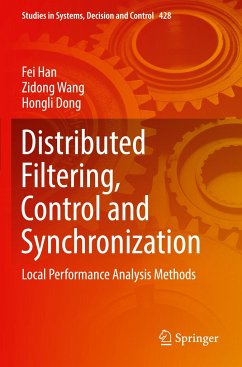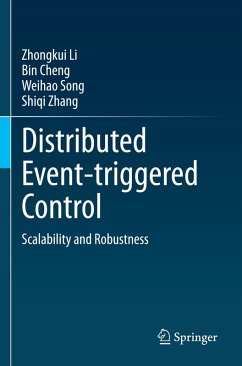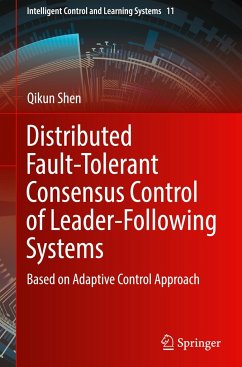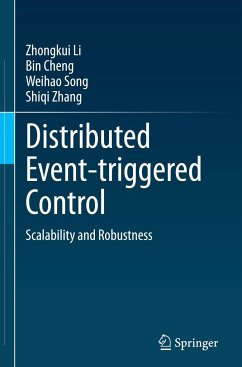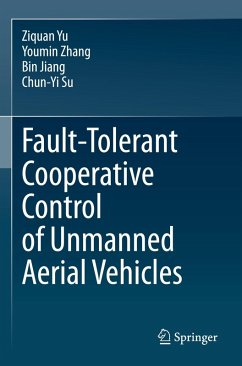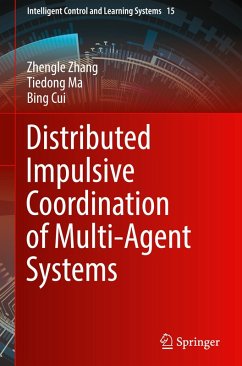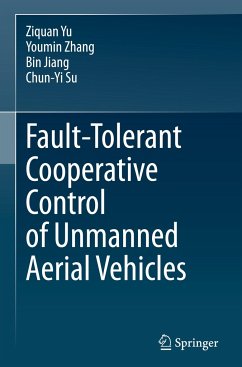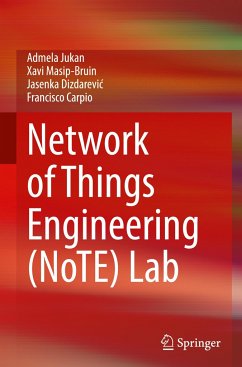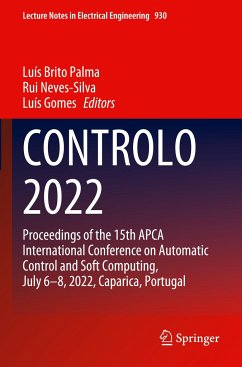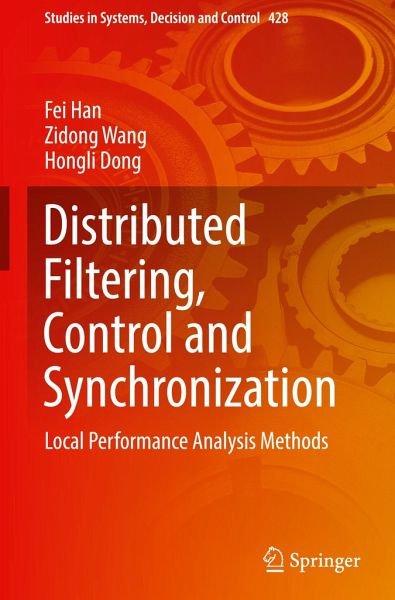
Distributed Filtering, Control and Synchronization
Local Performance Analysis Methods
Versandkostenfrei!
Versandfertig in 6-10 Tagen
149,79 €
inkl. MwSt.
Weitere Ausgaben:

PAYBACK Punkte
0 °P sammeln!
This book establishes a unified framework for dealing with typical engineering complications arising in modern, complex, large-scale networks such as parameter uncertainties, missing measurement and cyber-attack. Distributed Filtering, Control and Synchronization is a timely reflection on methods designed to handle a series of control and signal-processing issues in modern industrial engineering practice in areas like power grids and environmental monitoring.It exploits the latest techniques to handle the emerging mathematical and computational challenges arising from, among other things, the ...
This book establishes a unified framework for dealing with typical engineering complications arising in modern, complex, large-scale networks such as parameter uncertainties, missing measurement and cyber-attack. Distributed Filtering, Control and Synchronization is a timely reflection on methods designed to handle a series of control and signal-processing issues in modern industrial engineering practice in areas like power grids and environmental monitoring.
It exploits the latest techniques to handle the emerging mathematical and computational challenges arising from, among other things, the dynamic topologies of distributed systems and in the context of sensor networks and multi-agent systems. These techniques include recursive linear matrix inequalities, local-performance and stochastic analyses and techniques based on matrix theory.
Readers interested in the theory and application of control and signal processing will find much to interest them in the new models and methods presented in this book. Academic researchers can find ideas for developing their own research, graduate and advanced undergraduate students will be made aware of the state of the art, and practicing engineers will find methods for addressing practical difficulties besetting modern networked systems
It exploits the latest techniques to handle the emerging mathematical and computational challenges arising from, among other things, the dynamic topologies of distributed systems and in the context of sensor networks and multi-agent systems. These techniques include recursive linear matrix inequalities, local-performance and stochastic analyses and techniques based on matrix theory.
Readers interested in the theory and application of control and signal processing will find much to interest them in the new models and methods presented in this book. Academic researchers can find ideas for developing their own research, graduate and advanced undergraduate students will be made aware of the state of the art, and practicing engineers will find methods for addressing practical difficulties besetting modern networked systems





